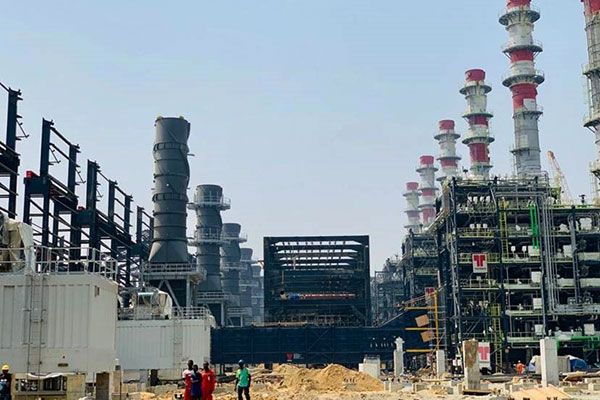
Africa Finance Corp. (AFC) is turning to opportunities in the downstream in an attempt to tackle the continent’s import problem.
“That’s where the value add is. There’s a huge opportunity for beneficiation that is missed. At the moment, the oil is shipped out and then countries pay for it to come back, as refined products,” AFC’s director Osam Iyahen told Energy Voice.
“It’s a mind-boggling waste and not just from an economic perspective. There’s also an environmental impact,” he said.
“There’s an opportunity to build refineries and value additive industries,” Iyahen said. The institution is interested in a range of downstream projects.
AFC signed up to provide a $35 million debt facility for the Waltersmith Petroman modular refinery, in Nigeria, in 2018. It also agreed to provide $300mn in senior debt to the Dangote Refinery. The first plant has capacity of 5,000 barrels per day, the second, 650,000 bpd.
While AFC sees a need for more investment in the downstream, it will continue to maintain its “integrated approach”, Iyahen said. “Rather than invest in just one aspect of the chain, we take an integrated view in order to control cost and the economics of projects. That helps ensure a project is delivered on time and on budget – it’s an ecosystem strategy.”
Over the last 11 years, the upstream has been the primary focus of AFC’s work. Around two thirds of its investments are in this sector.
Historic upstream
The agency has the aim of closing the infrastructure gap in Africa. Iyahen said that there was not an availability of funds for work – it was rather a lack of bankable projects. AFC works to make projects bankable.
“We have to make sure there’s a sustainable developmental impact and to create jobs,” the AFC director said. This holds a number of requirements, such as maintaining environmental standards and making sure that projects conform with local rules and regulations.
At the same time, the agency is in the business of generating returns for shareholders.
As with the broader industry, COVID-19 has had an impact on AFC and its projects. Iyahen gave the example of due diligence, which is harder to do when countries require visitors to quarantine.
“There’s a slowdown in activity and it has impacted the timeframe for doing projects, from beginning to end,” he said.
As to what opportunities Africa has at a point when much of the talk is of energy transition, Iyahen took a middle ground. “In the short to medium term, fossil fuels will continue to have a place. We have to be careful to not have an energy deficit through a lack of investment in the upstream,” he said.
AFC cannot provide the investment on its own, given the risks and the capital intensive nature of the business. “We need to bring in partners. There are opportunities there for smaller independents and indigenous companies, as the IOCs reconsider their plans.”

